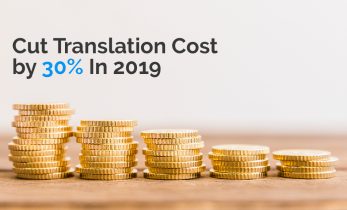Greater than 4 minutes, my friend!
How To Tell Apart The Professional Translators And Interpreters From The Not-So-Professional Why is it crucial for clients to know the difference and only seek those who are professional translators and interpreters?
In this blog we will examine five key elements that separate the professionals from the not-so-professionals and why it is crucial for you as a client to know the difference and only seek those who are professional.
1.Professionalism & Code Of Ethics
Professional translation and interpretation services are founded on trust, honesty, respect and a strict code of ethics.
Just like you trust and respect doctors and lawyers with good reputations, (even though you personally do not know if they are any good) you must still hire and pay them to find out.
You take this risk because of their qualifications and good reputation.
In a similar fashion, translation and interpretation services require trust, because most often you are not able to assess the quality of their work.
Professional translators and interpreters are honest and only take on projects within their representations, resources, time, credentials, experience, knowledge, expertise, qualifications, certifications, responsibilities etc.
Would you question the methods made by doctors, lawyers or accountants? No.
Just as you have respect for who they are, you should have the same respect for translators and interpreters.
Why?
Because translators and interpreters are professionals too. They are specialists who have years of education and experience, they have earned many credentials and are experts in their fields.
2. Quality And Value Are Standard
Quality and value are assured when the professional translators and interpreters work within their expertise, qualifications, experience and knowledge.
Professional translators and interpreters convey meaning faithfully, accurately and impartially, while always keeping and protecting privileged and confidential information.
A professional translator provides you with value and quality publish-ready work every time.
Providing value and quality translations and interpretations are the standard for professional translators and interpreters.
3. Professional Fees
An employee is generally guaranteed a regular wage amount hourly, weekly or other determined period of time.
An independent contractor, also known as a freelancer, is usually paid a flat fee for their service.
Could you approach doctors or lawyers for services and dictate their fees? No.
As you already know, specialists and professionals get paid more, not less.
Their knowledge, tools and experience makes them work faster and provide better quality.
Each translation and interpretation project comes with its own specific requirements (cultural background, language pair, credentials, regionalisms, specialization, expertise, type of service etc) for which there are a limited amount of qualified professional translators and interpreters, which is why each professional establishes his or her own fee.
The professional fee of a translator and interpreter reflect their value, quality services, expertise, credentials, knowledge, skills and experience.
Translators and interpreters are business owners which means they spend time and money on administrative tasks, equipment, pension, health insurance, rent, marketing, association memberships, insurance, accounting, sick days, vacation, ongoing professional development and much more.
Furthermore, in the case of a professional translator and interpreter, a fee per job, per-word or hourly is an internal matter, professionals use a confidential formula to calculate a fee for a given project.
4. Continued Professional Development
All professionals are on a continuous learning curve and no one translator or interpreter knows it all.
Language is dynamic, a living and evolving organism, with new words, phrases, slang and expressions added daily.
Just as you would expect lawyers to be up-to-date with laws, doctors with new diseases, methods, treatments, surgery, medicine and much more, the same applies to translators and interpreters.
Professional translators and interpreters are life-long learners of their craft, language and service.
They regularly attend conferences, classes, courses, training, events, programs, webinars, and much more to keep up-to-date, sharpen their skills and never stop learning.
As the client, you should seek translators and interpreters who are true professional, who have received formal education and follow good business practices.
5. Specialization
As mentioned on point 4, no one translator or interpreter knows everything about each subject.
In reality the list of areas of expertise and specializations is a vast one with each genre having sub-genres and those with sub-genres of their own and so on.
Every translator and interpreter must know, understand, memorize and use specialized vocabulary in at least two languages.
This is very difficult because the majority of the terms are not used in the everyday language.
For this reason and many others true professional translators and interpreters specialize and become experts in several fields not all of them.
As you can easily see, it is vital for you to know the difference between professional translators and interpreter from those not-so-professional.
Why?
Because it can mean the difference between a misunderstanding and clear communication.
We have only examined five key elements that separate the professionals from the not-so-professionals.
What if you already found a professional translators or interpreter to work with, what now?
On my next blog we will discuss a few client tips.
As always, thank you for reading and sharing my posts.
Feel free to connect or email me, Carmen Arismendy. I’m a professional Spanish interpreter-translator and founder of eLingual.Net. I started the eLingual Network because I could not find a fair, no middleman, no job bidding, ethical and transparent meeting place for translators, interpreters and clients online. The website is in beta phase and by no means perfect but it’s a step in the right direction.
eLingual.Net’s mission is to spread happiness worldwide through happy translators, interpreters and clients.
For the professional translator and interpreter, this means no middleman, no job bidding, the freedom of setting their own fees, having control over their services, and who they choose to work with.
For the clients, this means working directly with ethical and professional translators and interpreters committed to quality and value.
Join our happy community, let’s work together!
Translators’ & Interpreters’ Register | Clients’ Register | About Us | FAQ





Thanks Carmen, I like that you talk about quality associated with “value”. Translators often talk of “quality translations”, though clients expects value, the right translation for their purpose. Quality is obvious. I also like the comparison with other professions, illuminating for people who do not know what translators are and do 🙂
Thank you Francesca for your comment. People often don’t know the behind the scenes of our profession but like you mention we need to shed more light on the matter and make it very clear for clients to understand the difference. It’s a win-win.